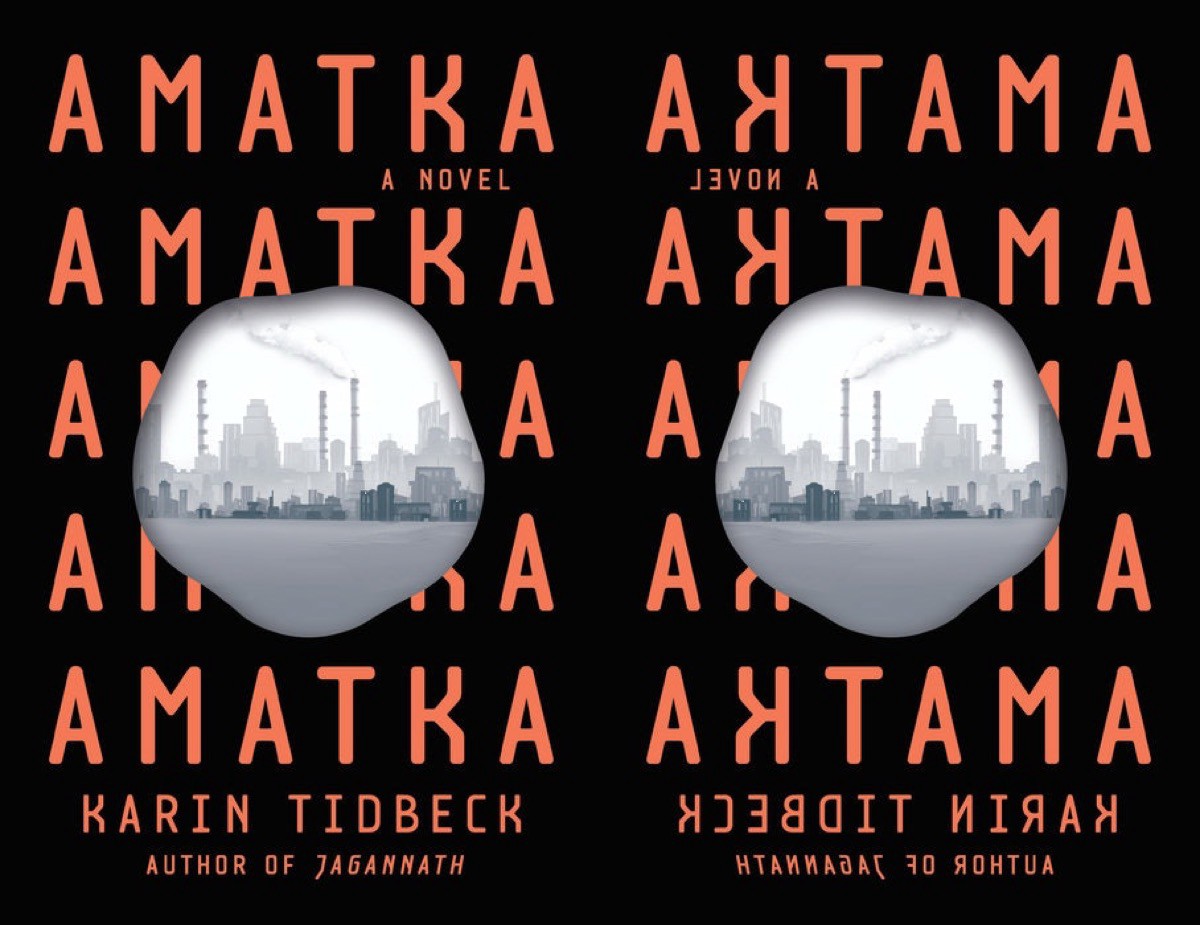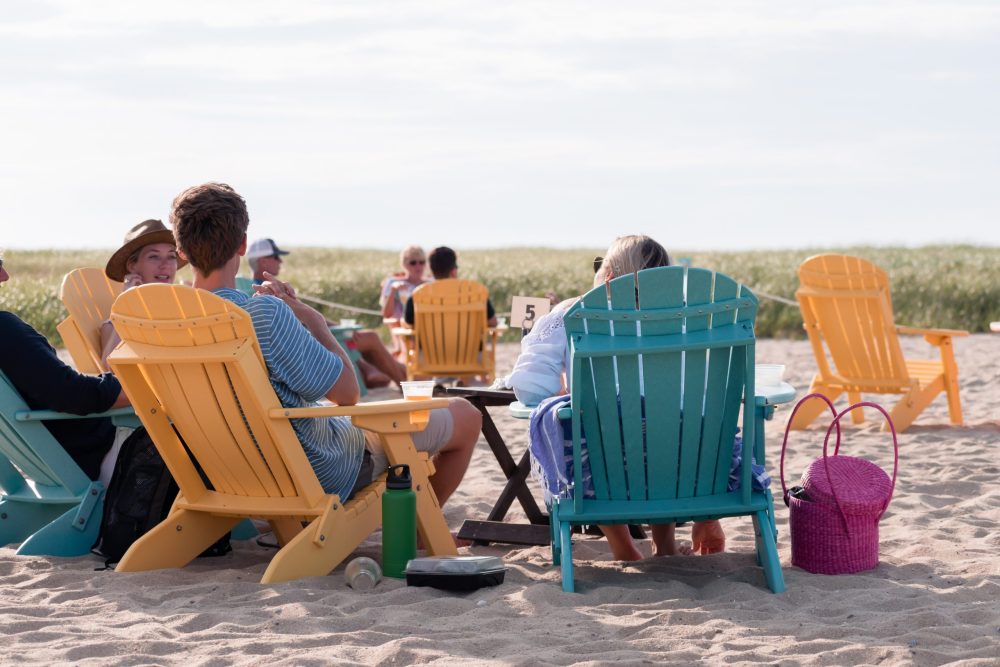Interviews
Camille Bordas Doesn’t Understand Why You Want to Relate to Her Characters

The French author explains why she’s terrified of commercial art, and why identifying with fictional characters is just plain strange

The narrator of Camille Bordas’ new novel, How to Behave in a Crowd—Isidore Mazal, or Dory—is by all measures a normal child on the cusp of adolescence. But among his high achieving siblings, his normalcy seems more like a failure than an emblem. While his siblings skip grades, pursue doctorates in their early twenties, and publish theses on humorism in the golden age, Dory shows no unique academic aptitude and struggles to build relationships in the face of his siblings’ insistence that knowledge is more important than friendship.

But in the aftermath of a family trauma, intellectual theories fail to help the siblings recover. Dory’s observations of how his siblings react to the incident illuminate the chasm between theoretical knowledge and interpersonal relations.
Bordas’ narration is intricate and wise, told through the eyes of a boy whose social observations begin to overshadow his siblings’ academic achievements in the notoriously rigorous French school system. In a conversation over email, we discussed how she worked social theories into the novel, the meaning of the word pretentious, and how our relationship to fiction changes as we get older.
Becca Schuh: I loved the debate that Dory and Simone have over the word “pretentious”— I’ve found myself in similarly absurd discussions. As Simone states, the actual definition of the word is “looking to impress people with knowledge you haven’t really mastered,” versus the idea that it “defines someone who talks about a thing that others don’t understand.” The way I hear it used the most is referring to people who discuss esoteric topics that are perhaps inaccessible to the general population, but I’m sure that’s not by any means the dictionary definition. What does the idea of pretension mean to you, and how do you navigate the gray area between the dictionary definitions of words and how they’re used colloquially?
Camille Bordas: It depends on the language I’m speaking! In French, I used to be a Simone-type tight-ass when it came to proper word usage — I wouldn’t correct anyone of course, I’m not entirely socially inept, but I would notice misuses, big or small, see word meanings slide slowly, inevitably…and then I moved to the U.S. with a pretty good command of English, but I had a limited range, and I wanted to expand it, so I had to try things out, make mistakes, navigate the gray area you mention between registers…and that was liberating in a way, even though I’m still sort of terrified at the idea of misusing certain words in public and making a fool of myself. It’s weird that I’m so attached to proper definitions, because there’s nothing I love more than people who play with language and bend it in fun ways.
I guess that’s the answer to your question, though: if you’re going to bend language, you have to be funny about it. Or very smart, I guess. Otherwise yeah, you’re kind of just being pretentious. Or plain wrong.
BS: It was so interesting to get these miniature lessons on the obscure things the siblings studied. One I found particularly fascinating was Berenice’s thesis on humorism. It made me think about personality tests, the everlasting human fascination with everything from Myers-Briggs to astrology to internet personality quizzes. How did the idea of categorizing humans relate to the narrative of Dory and his siblings for you?
CB: Categorizing is organizing, is giving you a sense of a grip on reality. And that grip becomes a sort of power, I guess. Dory is more interested in people than his siblings are, but just like them, he seems to have a mind for categorizing. So he sorts through what he sees and goes about it methodically. He notices and interprets people’s awkward silences, the shifts in their facial expressions (in the guy who’s courting his mother, for instance), etc. I don’t think he wants to notice all these things. They become a problem to him in a way. Like, when he says, “My parents didn’t look very much in love to me, and I thought it was my fault,” he’s under the impression that noticing things other people don’t makes him responsible for them.
The issue with Dory’s “gift” for reading humans is that, unlike his siblings, who deal with abstract or intellectual topics, the struggles that he notices cannot be solved by writing an academic essay, so he ends up accumulating knowledge about human emotions that weighs him down more than anything else. Then he realizes, by catching glimpses of his siblings’ work, that human emotions have always been categorized by intellectuals (doctors, in the case of humorism, sociologists, novelists), and put at a distance, in a way. So he tries to learn how to do that. Not to unsee the things he’s seen, but to numb himself to them.
Support Electric Lit: Become a Member!
BS: When Simone is talking to Dory about Aristotle’s rules of fiction, she posits that his ideas, motivations, and desires exist because he’s seen them played out in books and films. Do you believe that this is true today? How does the plethora of media the average person consumes affect their choices and lifestyle?
CB: There are definitely people out there who have a thing for drama, and I wonder what they’d be like had they never seen a TV show. I don’t think it’s very controversial to say that the media seems, more and more, to be trying to push on us all an image of the life we’re supposed to aspire to. Parallel to that, people seem to have become more and more interested in seeing themselves reflected in the stories they’re told. They need to relate, to be able to predict characters’ reactions…and it becomes a big blur between life and fiction. It ends up feeling like you’re supposed to react to adultery the way people react to it on TV, for instance. I’ve seen this happen around me, and it seems both false and sad. Perhaps some people react in a prescribed way to protect themselves from what they really feel. I don’t know. Nor do I know which came first: our desire to be reflected in stories, or the media’s attempts to reflect us.
Commercial art (the one Simone talks about in the book) teaches us to live in clichés, and some clichés are useful, I guess, but I fear sometimes that they just end up numbing us at our core, if we don’t take them with the grain of salt they require. They make us all lemmings and there’s no emotional connection anymore — life ends up being a simple verification of human clichéd reactions. I guess there’s something reassuring to that to some people, but I find it quite terrifying.
I do think some people live through fiction, but even though I devote my life to fiction, it’s still a pretty foreign idea to me. Fiction is important to me as a way to bear existence, but not as a way to help conduct my life and make decisions. I think it boils down to identification, in the end, and that’s a concept I’m not sure I can relate to. I don’t get the need to identify with a character to be involved in a book or in a movie. As a reader, I need to care for, or hate, or be entertained by a character in order to get involved in their story, but identification…I’m not even sure I know what that means, or why I would want that. Sounds scary. I’m a pretty empathetic person, however, so I guess one has nothing to do with the other. Maybe I reserve true empathy for real life. I love fiction more than any other man-made thing in life, but I still love life more than fiction, because life is what allows for it. I like this thing Robert Filliou said: art is what makes life more interesting than art.
“I don’t get the need to identify with a character to be involved in a book or in a movie. As a reader, I need to care for, or hate, or be entertained by a character in order to get involved in their story, but identification…I’m not even sure I know what that means, or why I would want that.”
BS: Midway through the book, the mother says “The memories you make as you get older, they’re not as bright, you know? They’re more like memos. They have a certain flatness. And a veil.” This reminded me of a Geoff Dyer passage from his book Zona, where he says that all of his “favorites” developed in his youth, because his emotions towards art were so much stronger when they felt unprecedented. As we age, how do you think our emotional reactions to both art and interpersonal relations change?
CB: I didn’t know the Dyer quote but it rings true, sadly. I mean, maybe it’s not that sad. It’s a double-edged thing. On one hand, having accumulated knowledge and experience, age makes you more able to see through the bullshit, so that’s good. But on the other, you’re just not as open-hearted as you were growing up, as ready to absorb new ideas, as hungry to build yourself as when you thought you were the first to ever feel what you felt. After that, your personality sets and dries in the sun a little. You can’t quite maintain the same intensity.
But now saying all this, I realize I must not quite be done growing because I’m still pretty hungry to discover new authors and artists, for instance, and when I do stumble upon one that I love and have never heard of before, I’m as excited about it, maybe more, actually, than I would’ve been 10 years ago.
However, I did hear people in their 50s or 60s say that they had lost all interest in fiction even though they loved it before. That frightens me a little. But anyway, maybe Dyer was in a bad mood when he wrote that. If you’d asked me the same question last year, I might’ve said, “Yeah, you like less and less things as you age, and generally, getting older sucks,” but I’m in a pretty good mood today. It’s like when I moved to the States, I had no friends here other than my husband, and I had no idea to make any. To feel better about my failure at it, I concocted this stupid theory that you couldn’t really make any new close friends past the age of 25. I convinced myself of that. And then last year I met Catherine Lacey, who’s not only an amazing writer but also one of the best human beings around. Very fun to drink with.
BS: Throughout the novel, you intersperse a lot of “social ideas,” like a few of the ones mentioned above, or the idea of the characters “practicing melancholy.” What fascinates you about putting names and analysis to the ways people look at the world and socialize?
CB: That’s some sort of occupational hazard…I read a lot of Erving Goffman in grad school (Presentation of Self in Everyday Life, Behavior in Public Places — that’s where my title came from, by the way, since in French it was translated as “How To Behave In Public Places”), I became really interested in “micro sociology,” the study of individual social processes as opposed to big, all encompassing ones.
I also have an uncle who narrates his actions whenever there’s an awkward silence. He’ll help himself to some wine and say “A little more wine perhaps, mister Cordoba?”/”Why yes, thank you very much!,” and I noticed that I tend to narrate other people’s smallest actions in my head as well. It’s not so much that putting names and analysis to our routine behaviors fascinates me as much as it reassures me. When I first read Goffman, and Harold Garfinkel, also, something opened up that was as close as someone like me can get to a religious experience, I think: “I’m not alone! We’re all the same!” — something like that. I felt connected to everyone else. I know it sounds cheesy, but well, I’d never really felt that before, and it was comforting, and still is, because half of the time, I’m not even entirely sure I’m alive, so looking at other people and noting how every little thing they do was in Goffman helps me remind myself that we’re all here and we’re all weird and it’s all fine.
BS: The “olive of shame” bit was truly hilarious, but I was further fascinated by the line following it: “Something we had only considered vaguely impolite became shameful through the magic of a foreign proverb.” How do the stories and jokes that we share with our loved ones affect our relationships?
CB: They just make us closer. A private joke, a made-up expression, an adopted and beloved one…any specific group of words that you only share with a small group of people and ends up meaning something unique to you and that group of people is like a magic shortcut to expressing something big and idiosyncratic about your relationship with them. It sends you back to the moment you devised it. I wonder if all families have something like that, their own pantheon of modified sayings, like the Mazals do in the book. I know of a few. When other people do share their homemade sayings with you, it’s very rewarding: you join their very private club. Anyway, my family has a handful of expressions that I never heard used elsewhere. It’s a sort of clanic language at this point.
BS: In the days following finishing the novel, I found myself bringing up the idea of the funnel in social situations, that as you go through school and life you’re more and more constrained by your choices and have less and less possibility. Have you felt the “force of the funnel” in your life? Do you think that there’s any way to avoid the feeling that as you grow older, you have fewer options?
CB: I ask myself these questions a lot when it comes to writing. I’ve never been confident in that area. I always wonder if I made the right choice in pursuing this. In France, I started publishing very young, and people liked my first book, so it seemed like I should keep doing it…you know, in a way it’s the only instance in which I feel close to professional athletes: they started doing what they do very early on, and it has defined their whole lives, but how do they feel at the end of their career, when they still have 50 years of life to fill? I kind of feel like that all the time, even though I’ve arguably picked the one career-path where you’re most likely to peak when you’re old. It’s still a choice that I made when I was young, and in many ways I don’t even remember who I was then, yet I’m still living a life that that person decided on.
It didn’t seem like a decision at the time, and that’s what Simone says in the book: you don’t even realize you’re going down the funnel. What happened in my case is that my father died when I was 19, a few weeks before my last year in college ended. I did finish college, but I was also broken and in a state of “Fuck this/No tomorrow/Might as well write fiction.” And I wrote my first book the following year, didn’t apply to grad school, started working…and now 10 years later, I can’t help but wonder if, were my father still alive, I would’ve just made the same decision, only later, or if I would just be the archeologist I was training to be when he died. It’s a little bit crushing, as far as the questions you can ask yourself go. So yeah, I definitely feel the force of the funnel.
I did finish college, but I was also broken and in a state of “Fuck this/No tomorrow/Might as well write fiction.”
And I regularly make attempts at fighting it, at climbing back up. After publishing my first book, I wasn’t sure I could write another, so I went back to grad school, for Anthropology. But then as I was getting my Masters, I wrote my second novel. Somehow I always go back to that. Maybe it’s part of the process of writing for me, to think that I should be doing something else, try it, and realize that I’m better at writing. This reminds me that years ago, I stumbled upon an old article in the archives of the French newspaper Libération. It was some sort of special issue about books, where they asked several writers the same questions. One of the writers was Beckett and one of the questions was “Why do you write?,” and they all went on and on and on about vocation and love of books and the power of literature etc., and Beckett’s answer was a laconic: “Bon qu’à ça,” which translates to: “Only good at that.” That moved me quite a lot.








